#ernest livingston
Note
*smacks into your window screen*
•°☆TIS I THE SOUP FAIRY!!!☆°•
Your character is sitting outside a little restaurant by the sea. They are telling their most intimate friend about their beloved. They're drinking something delicious. What are they saying? What are they drinking?
ERNEST LIVINGSTON is rambling to his sister about how wonderful Auggie Basset is, even if he finds it a bit awkward to call a grown man Auggie. He’s drinking a nice cappuccino with a chocolate croissant. It’s a breezy sunny, on the English coast where Ernest and his sister are watching their older sister and nephew, Elijah, on the beach. It’s very peaceful, and honestly, it’s everything that Ernest needed at that moment.
FINN MACKADE has just returned from his trip around the world, photographing different creatures, and is telling his brothers about his trip and his darling Scotty. He’s drinking a cinnamon hot chocolate with whipped cream and chocolate shavings and marshmallows. He’s very content and it’s nice to see his brothers. He’s felt a little guilty about leaving for approximately nine months and placing Nate as the main brother in charge.

#ernest livingston#auggie basset x ernest livingston#bridgerton next gen oc#finn mackade#hpma#magic awakened#soup’s worldbuilding wednesday asks
2 notes
·
View notes
Photo
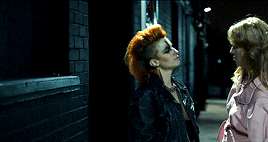

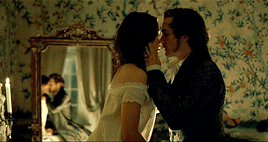
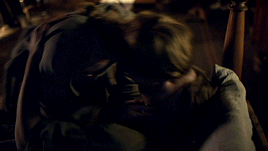

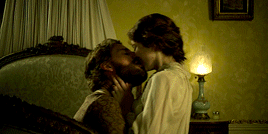

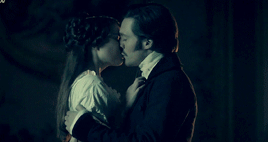

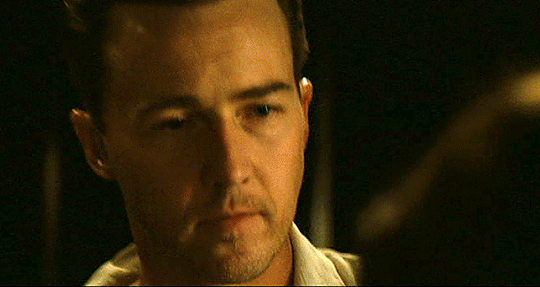
PERIOD DRAMA APPRECIATION WEEK 2022 - Day 7: (Free Day)
Favorite Passionate Moments
Steph Chambers & Gail in PRIDE (2014)
Grace Marks & Simon Jordan in ALIAS GRACE (2017)
Queen Victoria & Prince Albert in THE YOUNG VICTORIA (2009)
Sarah Livingston & Ben Tallmadge in TURN: WASHINGTON’S SPIES (2014-2018)
Isolde & Tristan in TRISTAN + ISOLDE (2006)
Alma Kinnaird & Arthur Kinnaird in THE ENGLISH GAME (2020)
Vera Claythorne & Philip Lombard in AND THEN THERE WERE NONE (2015)
Harriet Duchess of Sutherland & Prince Ernest in VICTORIA (2016-2019)
Anne Neville & Richard III in THE WHITE QUEEN (2013)
Kitty Fane & Walter Fane in THE PAINTED VEIL (2006)
#perioddramaweek2022#perioddramaedit#perioddramasource#periodedit#userperioddrama#userrobin#userbennet#prideedit#aliasgraceedit#theyoungvictoriaedit#turnedit#tristanandisoldeedit#theenglishgameedit#attwnedit#victoriaedit#twqedit#thepaintedveiledit#onlyperioddramas#mygifs#filmtvcentral
136 notes
·
View notes
Quote
Psyco (1960) Alfred Hitchcock
Il mago di Oz (1939) Victor Fleming
Il padrino (1972) Francis Ford Coppola
Quarto potere (1941) Orson Welles
Pulp Fiction (1994) Quentin Tarantino
I sette samurai (1954) Akira Kurosawa
2001: Odissea nello spazio (1968) Stanley Kubrick
La vita è meravigliosa (1946) Frank Capra
Eva contro Eva (1951) Joseph L. Mankiewicz
Salvate il soldato Ryan (1998) Steven Spielberg
Cantando sotto la pioggia (1952) Stanley Donen e Gene Kelly
Quei bravi ragazzi (1990) Martin Scorsese
La regola del gioco (1939) Jean Renoir
Fa' la cosa giusta (1989) Spike Lee
Aurora (1927) Friedrich Wilhelm Murnau
Casablanca (1942) Michael Curtiz
Nashville (1975) Robert Altman
Persona (1966) Ingmar Bergman
Il padrino - Parte II (1974) Francis Ford Coppola
Velluto Blu (1986) David Lynch
Via col vento (1939) Victor Fleming
Chinatown (1974) Roman Polanski
L'appartamento (1960) Billy Wilder
Tokyo Story (1953) Yasujirō Ozu
Susanna! (1938) Howard Hawks
I 400 colpi (1959) François Truffaut
Gangster Story (1967) Arthur Penn
Luci della città (1931) Charlie Chaplin
La fiamma del peccato (1944) Billy Wilder
L'impero colpisce ancora (1980) Irvin Kershner
Quinto potere (1976) Sidney Lumet
La donna che visse due volte (1958) Alfred Hitchcock
8 1/2 (1963) Federico Fellini
Ombre rosse (1939) John Ford
Il silenzio degli innocenti (1991) Jonathan Demme
Fronte del porto (1954) Elia Kazan
Io e Annie (1977) Woody Allen
Lawrence d'Arabia (1962) David Lean
A qualcuno piace caldo (1959) Billy Wilder
Fargo (1996) Joel e Ethan Coen
Il mucchio selvaggio (1969) Sam Peckinpah
Moonlight (2016) Barry Jenkins
Shoah (1985) Claude Lanzmann
L’avventura (1960) Michelangelo Antonioni
Titanic (1997) James Cameron
Notorious - L'amante perduta (1946) Alfred Hitchcock
Mean Streets (1973) Martin Scorsese
Lezioni di Piano (1993) Jane Campion
Non aprite quella porta (1974) Tobe Hooper
Fino all'ultimo respiro (1960) Jean-Luc Godard
Apocalypse Now (1979) Francis Ford Coppola
Come vinsi la guerra (1926) Buster Keaton
In the Mood for Love (2000) Wong Kar-wai
Interceptor - Il guerriero della strada (1981) George Miller
Il lamento sul sentiero (1955) Satyajit Ray
Rosemary's Baby (1968) Roman Polanski
I segreti di Brokeback Mountain (2005) Ang Lee
E.T. - L'extraterrestre (1982) Steven Spielberg
Senza tetto né legge (1985) Agnès Varda
Moulin Rouge! (2001) Buz Luhrmann
La passione di Giovanna D'Arco (1928) Carl Theodor Dreyer
La vita è un sogno (1993) Richard Linklater
Bambi (1942) David Hand
Carrie - Lo sguardo di Satana (1976) Brian De Palma
Un condannato a morte è fuggito (1956) Robert Bresson
Parigi brucia (1990) Jennie Livingston
Ladri di biciclette (1948) Vittorio De Sica
King Kong (1933) Merian C. Cooper e Ernest B. Schoedsack
Beau Travail (1999) Claire Denis
12 anni schiavo (2013) Steve McQueen
Il matrimonio del mio migliore amico (1997) P. J. Hogan
Le onde del destino (1996) Lars von Trier
Intolerance (1916) D.W. Griffith
Il mio vicino Totoro (1988) Hayao Miyazaki
Boogie Nights (1997) Paul Thomas Anderson
The Tree of Life (2011) Terrence Malick
Agente 007 - Missione Goldfinger (1964) Guy Hamilton
Jeanne Dielman (1975) Chantal Akerman
Sognando Broadway (1966) Christopher Guest
Pixote - La legge del più debole (1981) Héctor Babenco
Il cavaliere oscuro (2008) Christopher Nolan
Parasite (2019) Bong Joon-ho
Kramer contro Kramer (1979) Robert Benton
Il labirinto del fauno (2006) Guillermo del Toro
Assassini nati - Natural Born Killers (1994) Oliver Stone
Close Up (1990) Abbas Kiarostami
Tutti insieme appassionatamente (1965) Robert Wise
Malcolm X (1992) Spike Lee
Bella di giorno (1967) Luis Buñuel
The Shining (1980) Stanley Kubrick
Scene da un matrimonio (1974) Ingmar Bergman
Pink Flamingos (1972) John Waters
Frank Costello faccia d'angelo (1967) Jean-Pierre Melville
Le amiche della sposa (2011) Paul Feig
Toy Story (1995) John Lasseter
Tutti per uno (1964) Richard Lester
Alien (1979) Ridley Scott
Donne sull'orlo di una crisi di nervi (1988) Pedro Almodóvar
La parola ai giurati (1957) Sidney Lumet
Il laureato (1967) Mike Nichols
Dall’articolo "I 100 migliori film della Storia del Cinema secondo Variety: 1° Psyco, 5° Pulp Fiction, 33° 8 1/2, 45° Titanic" di Antonio Bracco
19 notes
·
View notes
Text
Some of the books in MJ's library
Taj Jackson shared that his famous uncle loved the book The Law of Success by Napoleon Hill. He says Jackson loved this book and owned several copies of it.
According to biographer J. Randy Taraborrelli, in the early 80s, Jackson gave copies of the book The Autobiography of P.T. Barnum to both his lawyer and manager and told them, "Make this your Bible. I want my life to be the greatest show on earth."
The Old Man and The Sea by Ernest Hemingway
Rip Van Winkle by Washington Irving
The Power of Positive Thinking by Norman Vincent Peale
Animal Language by Michael Bright
Complete Writings of Ralph Waldo Emerson
The 48 Laws of Power
Seagull by Jonathan Livingston
Poetry by Rabindranath Tagore
Robert Burns poems
White Nights: The Story of a Prisoner in Russia by Menachem Begin
Hagakure: The Book of The Samurai by T. Yamamoto
Books by Sri Aurobindo
Books by Kalki Krishnamurthy
The Greatest Salesman in the World by OG Mandino
Malcolm X by Malcolm Haley
The Red Balloon by Albert Lamorisse
The Complete Works of O. Henry
The Verger by Somerset Maugham
The Reluctant Dragon by Kenneth Grahame
The Children's Hour by Henry Wadsworth Longfellow
The Tyger by William Blake
Sufi Poetry
The Bridge of Sighs by Thomas Hood
The Prophet by Khalil Gibran
Thoughts of Love: A Collection of Poems on Love by Susan Polis Schutz
Complete Stories and Poems of Edgar Allen Poe
They Cage the Animals at Night by Jennings Michael Burch
The Gift of Acabar by Og Mandino
Leaders of Men by Henry Woldmar Ruoff
Reflections in Black by Deborah Willis
Black in America by Eli Reed
Black Heroes of The 20th Century by Jessie Carney Smith
The Negro Caravan by Sterling A. Brown
Before the Mayflower by Lerone Bennet Jr.
How to Eat To Live by Elijah Muhammad
Your Creative Power by Alex Osborn
My Autobiography by Charlie Chaplin
Elvis Day By Day by Peter Guralnick
James Dean: An American Icon by David Loehr
Goldwyn: A Biography by A. Scott Berg
Duse: A Biography by William Weaver
Steps In Time by Fred Astaire
Bruce Lee: The Celebrated Life of the Golden Dragon by John Little
Songs My Mother Taught Me by Marlon Brando
Elia Kazan: A Life by Elia Kazan
The Rolling Stones: A Life on the Road
Abraham Lincoln by Carl Sandburg
Lincoln's Devotional by Carl Sandburg
Lennon in America: 1971-1980, Based in Part on the Lost Lennon Diaries, by Geoffrey Giuliano
Glass Onion: The Beatles In Their Own Words by Geoffrey Giuliano
The Beatles Illustrated Lyrics by Alan Aldridge
The Lost Lennon Interviews by Geoffrey Giuliano
Things We Said Today: Conversations with the Beatles by Geoffrey Giuliano
Books about Hitler - talking to Rabbi Schmuley Boteach, he said, "Hitler was a genius orator. To make that many people turn and change and hate, he had to be a showman and he was."
2 notes
·
View notes
Text
Academy award movies from 2017

#ACADEMY AWARD MOVIES FROM 2017 PROFESSIONAL#
nominated for Best Actress in a Supporting Role ( Janet Leigh).nominated for Best Writing, Story and Screenplay - Written Directly for the Screen ( Ernest Lehman).nominated for Best Film Editing ( George Tomasini).nominated for Best Art Direction-Set Decoration, Color.nominated for Best Sound ( George Dutton).nominated for Best Art Direction-Set Decoration, Black-and-White Or Color ( Hal Pereira & Henry Bumstead).nominated for Best Art Direction-Set Decoration, Color ( Hal Pereira).nominated for Best Costume Design, Color ( Edith Head).nominated for Best Writing, Screenplay ( John Michael Hayes).nominated for Best Sound, Recording ( Loren L.nominated for Best Cinematography, Color ( Robert Burks).nominated Best Cinematography, Black-and-White ( Robert Burks).nominated for Best Actress In A Supporting Role ( Ethel Barrymore).nominated for Best Writing, Original Screenplay ( Ben Hecht).nominated for Best Actor In A Supporting Role ( Claude Rains).nominated for Best Effects, Special Effects ( Jack Cosgrove).nominated for Best Cinematography, Black-and-White ( George Barnes).nominated Best Actor In A Supporting Role ( Michael Chekhov).nominated for Best Writing, Original Story ( John Steinbeck).nominated for Best Cinematography, Black-and-White ( Glen MacWilliams).nominated for Best Writing, Original Story ( Gordon McDonell for " Uncle Charlie").nominated for Best Picture ( Alfred Hitchcock).nominated for Best Music, Scoring Of A Dramatic Picture ( Franz Waxman).nominated for Best Writing, Original Screenplay ( Charles Bennett & Joan Harrison).nominated for Best Picture ( Walter Wanger).nominated for Best Effects, Special Effects ( Paul Eagler & Thomas T.nominated for Best Cinematography, Black-and-White ( Rudolph Maté).nominated for Best Art Direction, Black-and-White ( Alexander Golitzen).nominated Best Actor In A Supporting Role ( Albert Bassermann).nominated for Best Writing, Screenplay ( Robert E.nominated for Best Music, Original Score ( Franz Waxman).nominated for Best Film Editing ( Hal C.nominated for Best Effects, Special Effects ( Jack Cosgrove & Arthur Johns).nominated for Best Director ( Alfred Hitchcock).nominated for Best Art Direction, Black-and-White ( Lyle R.nominated for Best Actress In A Supporting Role ( Judith Anderson).nominated for Best Actress In A Leading Role ( Joan Fontaine).nominated for Best Actor In A Leading Role ( Laurence Olivier).recipient of the 2008 Honorary Academy Award for his work as a Production Designer.won Best Music, Original Song for the song " Whatever Will Be, Will Be (Que Sera, Sera)" ( Jay Livingston & Ray Evans).won Best Cinematography, Color ( Robert Burks).won Best Music, Scoring Of A Dramatic Or Comedy Picture ( Miklós Rózsa).won Best Actress In A Leading Role ( Joan Fontaine).won Best Cinematography, Black-and-White ( George Barnes).In 2008, the honorary Academy Award was presented to 98 year old production designer Robert F. In 1968, Alfred Hitchcock was presented with the Irving G. The annual Oscar presentation has been held since 1929. They are intended for the films and persons the Academy believes have the top achievements of the year. The votes have been tabulated and certified by the auditing firm PricewaterhouseCoopers for 72 years, since close to the awards' inception.
#ACADEMY AWARD MOVIES FROM 2017 PROFESSIONAL#
The Academy Awards, popularly known as the Oscars, are the most prominent film awards in the United States and most watched awards ceremony in the world.Īcademy Awards are granted by the Academy of Motion Picture Arts and Sciences, a professional honorary organization.

2 notes
·
View notes
Photo

William Hurt and Solveig Dommartin in Until the End of the World (Wim Wenders, 1991)
Cast: Solveig Dommartin, William Hurt, Sam Neill, Rüdiger Vogler, Jeanne Moreau, Max Von Sydow, Chick Ortega, Elena Smirnova, Eddy Mitchell, Adelle Lutz, Ernie Dingo, Ernest Beck, Christine Oesterlein, Kuniko Miyaki, Chishu Ryu, Allen Garfield, Lois Chiles, David Gulpilil, Justine Saunders, Paul Livingston. Screenplay: Peter Carey, Wim Wenders. Cinematography: Robby Müller. Production design: Sally Campbell, Thierry Flamand. Film editing: Peter Przygodda. Music: Graeme Revell.
Wim Wenders's almost five-hour-long cut of Until the End of the World may be the most self-indulgent film I've ever seen, and I've seen Heaven's Gate (Michael Cimino, 1980). The original cut of Wenders's movie was 20 hours long, but it was reduced to just under three hours for its first European release and to a bit over two and a half hours for American audiences in 1991. It failed with the critics and the box office. Wenders finally re-edited it to the 287-minute version released in 2015. But it really seems to me to be two movies stitched together by Sam Neill's voiceover narration. The first half is what Wenders himself has called the "ultimate road movie," a characteristic genre for the director of Alice in the Cities (1974), Kings of the Road (1976), and Paris, Texas (1984), starting in Venice and then bouncing to Paris, Berlin, Lisbon, Moscow, Tokyo, San Francisco, and finally Australia, where it settles for the second half. This half is a sci-fi film about experiments with perception and dreams that take place in the shadow of a potential nuclear holocaust. The first half is often funny; the second half isn't. I'm not prepared to call Until the End of the World a masterpiece, unless it's a masterpiece for cinéastes, who can indulge themselves to the fullest in tracing the allusions and influences that shape the movie. The characters played by William Hurt and Solveig Dommartin, for example, spend time in an idyllic setting in Japan where they're tended by characters played by Chishu Ryu and Kuniko Miyaki, actors familiar from the films of Yasujiro Ozu. Hurt's character's parents are played by the iconic Jeanne Moreau and Max Von Sydow. Wenders even evokes his own past by casting Rüdiger Vogler, the star of Alice in the Cities and Kings of the Road. It's a witty film in many regards, but as I said, self-indulgent. And 287 minutes is a kind of forced binge-watch, which makes me think that Until the End of the World would have made a terrific miniseries for Netflix or Hulu if they'd been around in 1991.
3 notes
·
View notes
Text
Events 5.4 (after 1950)
1953 – Ernest Hemingway wins the Pulitzer Prize for The Old Man and the Sea.
1959 – The 1st Annual Grammy Awards are held.
1961 – American civil rights movement: The "Freedom Riders" begin a bus trip through the South.
1961 – Malcolm Ross and Victor Prather attain a new altitude record for manned balloon flight ascending in the Strato-Lab V open gondola to 113,740 feet (34.67 km).
1970 – Vietnam War: Kent State shootings: The Ohio National Guard, sent to Kent State University after disturbances in the city of Kent the weekend before, opens fire killing four unarmed students and wounding nine others. The students were protesting the Cambodian Campaign of the United States and South Vietnam.
1972 – The Don't Make A Wave Committee, a fledgling environmental organization founded in Canada in 1971, officially changes its name to "Greenpeace Foundation".
1973 – The 108-story Sears Tower in Chicago is topped out at 1,451 feet (442 m) as the world's tallest building.
1978 – The South African Defence Force attacks a SWAPO base at Cassinga in southern Angola, killing about 600 people.
1979 – Margaret Thatcher becomes the first female Prime Minister of the United Kingdom.
1982 – Twenty sailors are killed when the British Type 42 destroyer HMS Sheffield is hit by an Argentinian Exocet missile during the Falklands War.
1988 – The PEPCON disaster rocks Henderson, Nevada, as tons of Space Shuttle fuel detonate during a fire.
1989 – Iran–Contra affair: Former White House aide Oliver North is convicted of three crimes and acquitted of nine other charges; the convictions are later overturned on appeal.
1989 – Space Shuttle Atlantis launches on mission STS-30 to deploy the Venus-bound Magellan space probe.
1990 – Latvia declares independence from the Soviet Union.
1994 – Israeli Prime Minister Yitzhak Rabin and PLO leader Yasser Arafat sign a peace accord, granting self-rule in the Gaza Strip and Jericho.
1998 – A federal judge in Sacramento, California, gives "Unabomber" Theodore Kaczynski four life sentences plus 30 years after Kaczynski accepts a plea agreement sparing him from the death penalty.
2000 – Ken Livingstone becomes the first Mayor of London (an office separate from that of the Lord Mayor of London).
2002 – One hundred three people are killed and 51 are injured in a plane crash near Mallam Aminu Kano International Airport in Kano, Nigeria.
2007 – Greensburg, Kansas is almost completely destroyed by a 1.7-mile wide EF5 tornado. It was the first-ever tornado to be rated as such with the new Enhanced Fujita scale.
2014 – Three people are killed and 62 injured in a pair of bombings on buses in Nairobi, Kenya.
2019 – The inaugural all-female motorsport series, W Series, takes place at Hockenheimring. The race was won by Jamie Chadwick, who would go on to become the inaugural season's champion.
2023 – Nine people are killed and thirteen injured in a spree shooting in Mladenovac and Smederevo, Serbia. It is the second mass shooting in the country in two days.
0 notes
Text
LÉGENDES DU JAZZ
RED NICHOLS, POUR UN PENNY DE PLUS
‘’Much of his vast recorded output was released in Europe, where he was regarded by early jazz critics as the equal, if not the superior, of Louis Armstrong and Bix Beiderbecke (...). Nichols' chief fault was an overly stiff, academic approach to jazz trumpet, but he did recognize merit as far as other jazz musicians were concerned and made some wonderful small group recordings.’’
-Michael Brooks
Né le 8 mai 1905 à Ogden, en Utah, Ernest Loring "Red" Nichols était le fils d’un professeur de musique. Enfant prodige, Nichols avait commencé à jouer du cornet à l’âge de cinq ans.
Nichols a joué avec le groupe de son père à partir de l’âge de douze ans. Nichols a été fortement influencé par Original Dixieland Jazz Band puis par Bix Beiderbecke. Nichols avait entendu Beiderbecke jouer pour la première fois sur un enregistrement de George Olsen intitulé ‘’You’ll Never Get To Heaven With Those Eyes.’’ Nichols a également joué une transcription du solo de Beiderbecke sur le classique “Jazz Me Blues” qui avait été enregistré le 18 février 1924.
Durant une partie de l’année 1920, Nichols avait étudié à la Culver Military Academy, dont il avait été expulsé, à l'instar de son idole Bix Beiderbecke.
DÉBUTS DE CARRIÈRE
Au début des années 1920, Nichols s’est installé dans le Midwest. Le 25 mai 1923, à l’âge de dix-sept ans, Nichols avait fait ses débuts sur disque avec le groupe Syncopating Five d’Howard Lanin. Nichols avait éventuellement pris la direction du groupe qui avait été rebaptisé le Royal Palms Orchestra. Le groupe s’était particulièrement produit sur la Côte est, et plus particulièment à Atlantic City.
Même s’il avait enregistré deux chansons avec Howard Lanin en mai 1923, c’est surtout après avoir été associé au frère d’Howard, Sam Lanin, que la carrière de Nichols avait vraiment décollé.
Après le démantèlement du Royal Palms Orchestra, Nichols a fait partie du Johnny Johnson Orchestra avec lequel il s’était installé à New York en 1923. À New York, Nichols avait rencontré le joueur de trombone Miff Mole, avec qui il avait joué durant une dizaine d’années. Avant de signer un contrat avec les disques Brunswick, Nichols et Mole, qui étaient devenus inséparables, avaient enregistré avec Pathé-Perfect sous le nom de Red Heads. En plus de Mole (qui avait participé à la plupart des enregistrements de Nichols en 1927-28 avant de se lancer dans une carrière de musicien de studio), Nichols avait également collaboré avec de futurs grands noms du jazz comme Glenn Miller, Jack Teagarden, Tommy Dorsey et Will Bradley au trombone, Pee Wee Russell, Benny Goodman et Frank Teschemacher à la clarinette, Bud Freeman, Eddie Miller, Babe Russin et Fud Livingston au saxophone ténor, Frankie Trumbauer au C-melody saxophone, Charlie Teagarden et Wingy Manone à la trompette, Dudley Fosdick au mellophone, Adrian Rollini au saxophone basse, Dick McDonough, Carl Kress et Eddie Condon à la guitare, Lennie Hayton, Joe Sullivan, Rube Bloom et Roy Bargy au piano, Joe Venuti au violon, Joe Tarto au tuba, Artie Bernstein à la contrebasse, Red McKenzie au chant et Gene Krupa, Chauncey Morehouse, Stan King, Dave Tough, Ray Bauduc et Ray McKinley à la batterie. Dans le film biographique ’’The Five Pennies’’, le personnage de Nichols prononçait souvent la réplique “Don’t worry, someday they’ll all be working for me.” Ironiquement, malgré le nombre impressionnant de futurs chefs d’orchestres qui avaient fait partie de son groupe, Nichols n’avait jamais vraiment connu de succès comme leader de ses propres formations à l’époque du swing.
Au début de sa carrière, Nichols avait également enregistré avec les disques Edison (1926), Victor (1927, 1928, 1930, 1931), Bluebird (1934, 1939), Variety (1937) et Okeh (1940). Parmi les nombreux artistes ou groupes avec lesquels Nichols avait enregistré de 1924 à 1926, on remarquait les Bailey’s Lucky Seven, les Charleston Seven, le Goofus Five, les Tennessee Tooters, le Lou Gold, les Melody Sheiks, les California Ramblers, les Lanin’s Red Heads, le Varsity Eight, les Five Birmingham Babies, Billy Wynne, les Little Ramblers, Bill Wirges, les Georgians, les Seven Missing Links, Ross Gorman, les Cotton Pickers, les Hottentots, Cliff Edwards, Ipana Troubadours, les Walter Davidson’s Louisville Loons, le Original Memphis Five, les Broadway Bellhops, Bob Haring, Arnold Brilhart, Little Pilgrims Orchestra, Frank Signorelli, Jay C. Flippen, Jack Albin, Annette Hanshaw, Don Voorhees, John Clesi’s Areoleans, Evelyn Preer et Lee Morse, et on ne parlait que des formations orientées vers le jazz.
Nichols, qui savait lire la musique, avait facilement obtenu du travail comme musicien de studio. En décembre 1926, Nichols avait commencé à enregistrer avec Mole dans le cadre de différentes formations connues sous le nom de Red Nichols and His Five Pennies. En réalité, le nom du groupe était un peu trompeur, car très peu de ces formations étaient des quintets. Parmi les membres du groupe, on remarquait Jimmy Dorsey à la clarinette et au saxophone alto, Vic Berton (un batteur qui pensait comme un percussionniste et jouait parfois du tympani), Eddie Lang à la guitare et Arthur Schutt au piano.
Nichols a enregistré plus de cent pièces avec les Five Pennies pour les disques Brunswick. Même si la taille du groupe avait évolué avec les années, son nom était demeuré échangé. De 1926 à 1932, Nichols a également enregistré avec les Arkansas Travelers, les California Red Heads, les Louisiana Rhythm Kings, le Wabash Dance Orchestra, les Alabama Red Peppers, les Charleston Chasers, les Red and Miff's Stompers et les Miff Mole and His Little Molers. Nichols avait aussi dirigé des groupes plus importants sur certains enregistrements et dans le cadre des revues ‘’Strike Up The Band’’ et ‘’Girl Crazy.’’
Extrêmement prolifique, Nichols enregistrait parfois une vingtaine de pièces par semaine.
En plus de Nichols au cornet, de Mole et de Jimmy Dorsey au saxophone alto et à la clarinette, le groupe de Nichols avait été notamment composé au cours de la décennie suivante de Benny Goodman à la clarinette, de Glenn Miller et Jack Teagarden au trombone, de Pee Wee Russell à la clarinette, de Joe Venuti au violon, d’Eddie Lang au banjo et à la guitare et de Gene Krupa à la batterie. Le groupe avait connu un succès inattendu avec la pièce "Ida, Sweet as Apple Cider", qui s’était vendue à plus d’un million de copies et s’était mérité un disque d’or de la Recording Industry Association of America. La composition de Nichols intitulée "Nervous Charlie Stomp" avait même été enregistrée par l’orchestre de Fletcher Henderson.
En 1927, Nichols avait passé quelques mois dans l’orchestre de Paul Whiteman. Son remplaçant était nul autre que son idole Bix Beiderbecke.
À la fin des années 1920, Nichols a également enregistré avec les Miff Mole’s Molers, Peggy English, Carl Fenton, Sophie Tucker, Art Gillham, Cass Hagan’s Park Central Hotel Orchestra, the Midnight Airedales, Irving Brodsky et les Red Hot Dogs. En plus de jouer du cornet, Nichols était un arrangeur imaginatif qui, un peu comme Jelly Roll Morton, avait le don de combiner des musiciens établis avec des groupes spécialement réunis pour l’occasion. Les arrangements de Nichols étaient d’une telle qualité qu’il devait souvent faire appel aux meilleurs musiciens disponibles.
Dans les années 1930, Nichols avait tenté de s’adapter au swing alors en effervescence, mais il avait beaucoup moins enregistré à partir de 1932. Nichols n’avait même pas enregistré du tout en 1933. L’année suivante, Nichols avait dirigé un groupe de onze musiciens appelé His World Famous Pennies. À la même époque, Nichols avait aussi dirigé des orchestres anonymes à la radio. Désormais considéré comme une relique du passé, Nichols avait été progressivement abandonné par ses musiciens qui avaient décidé de lancer leurs propres groupes. Le critique Michael Brooks écrivait:
‘’What went wrong? Part of it was too much, too soon. Much of his vast recorded output was released in Europe, where he was regarded by early jazz critics as the equal, if not the superior, of Louis Armstrong and Bix Beiderbecke. People who make fools of themselves usually find a scapegoat, and when the critics were exposed to the music of Duke Ellington, Benny Carter, Coleman Hawkins and others they turned on Nichols and savaged him, trashing him as unfairly as they had revered him. Nichols' chief fault was an overly stiff, academic approach to jazz trumpet, but he did recognize merit as far as other jazz musicians were concerned and made some wonderful small group recordings.’’
Durant la Crise des années 1930, Nichols avait gagné sa vie en se produisant dans des revues. Pendant un certain temps, Nichols avait aussi dirigé l’orchestre de Bob Hope, avant de s’installer en Californie.
Nichols avait épousé Willa Stutsman, une danseuse de la revue Scandals de George White, avec qui il avait eu une fille. En 1942, la fille du couple avait contracté la poliomyélite après qu’on lui ait diagnostiqué une méningite spinale. Jusqu’en 1943, on avait perdu toute trace de Nichols, qui s’était trouvé un emploi dans les chantiers maritimes afin de pouvoir mieux s’occuper de la santé de sa fille. Après s’être produit au Merry-Go-Round à Dayton, dans l’État de l’Ohio, Nichols avait fait son service militaire dans le cadre de la Seconde Guerre mondiale.
DERNIÈRES ANNÉES
En 1944, Nichols, qui n’avait rien perdu de son habileté au cornet à l’âge de trente-neuf ans, avait tenté un retour sur scène. Après avoir joué avec le Casa Loma Orchestra durant quelques mois, Nichols avait formé une nouvelle version de son groupe les Five Pennies, cette fois sous la forme d’un sextet qui s’était produit dans de petits clubs de Los Angeles. Le groupe avait joué par la suite dans de plus grandes salles comme le Zebra Room, le Tudor Room de l’Hôtel Palace à San Francisco et le Shearton de Pasadena, en Californie. À la suite du retour en force du Dixieland, Nichols avait aussi participé à des sessions avec Peggy Lee, Julia Lee, Phil Harris et Kay Starr. Il avait également fait des apparitions à la radio avec Bing Crosby.
Très populaire sur la scène locale, les Five Pennies mettaient souvent en vedette des artistes comme Heinie Beau ou Rosy McHargue à la clarinette et Herbie Haymer au saxophone ténor. L’une des pièces les plus populaires du groupe à cette époque était “Battle Hymn Of The Republic” (1949). Même si Nichols jouait parfois des arrangements innovateurs datant des années 1920, la plupart du temps le groupe interprétait une musique inspirée du Dixieland. Les Five Pennies s'étaient éventuellement dotés d'un son plus distinctif après qu’un saxophoniste basse et le joueur de trombone King Jackson se soient joints au groupe en 1949. Dans les années 1950, le groupe avait enregistré une série d’albums pour les disques Capitol, Jump et Audiophile et avait continué de se produire sur scène.
À la fin de sa carrière, Nichols a également joué le rôle d’ambassadeur de bonne volonté pour le Département d’État.
Nichols a participé à de nombreux films au cours de sa carrière. En 1929, il a joué dans un court-métrage de la compagnie Vitaphone qui mettait également en vedette son groupe les Five Pennies ainsi que les musiciens Eddie Condon and Pee Wee Russell. En 1935, Nichols a fait une apparition dans le film ‘’The Parade of the Maestros’’ aux côtés de Ferde Grofe. En 1950, Nichols a participé au tournage du film ‘’Wabash Avenue.’’ L’année suivante, Nichols avait partagé la vedette avec Mickey Rooney et Jeanne Cagney dans le film ‘’Quicksand.’’ La même année, Nichols avait également eu un petit rôle dans le film ‘’Disc Jockey’’ aux côtés de Tommy Dorsey. En 1959, Nichols avait aussi fait une apparition dans le film ‘’The Gene Krupa Story.’’
En octobre 1956, Nichols avait participé à un épisode de l’émission de télévision ‘’This Is Your Life’’, dans lequel il avait été réuni avec ses anciens collaborateurs Miff Mole, Phil Harris et Jimmy Dorsey. Ces derniers avaient d’ailleurs remercié plus tard Nichols de s’être assuré que tous les membres du groupe avaient été payés.
En juin 1965, Nichols avait obtenu un contrat pour se produire avec les Five Pennies au Mint Hotel de Las Vegas. Le 28 juin, quelques jours après avoir participé à son premier concert, Nichols avait éprouvé des douleurs à la poitrine durant son sommeil. Nichols avait appelé la réception pour obtenir du secours, mais il était déjà mort au moment de l’arrivée de l’ambulance. Il était âgé de soixante ans. Le soir-même, le groupe avait rendu hommage à Nichols en se produisant comme prévu, avec un projecteur orienté vers la chaise vide du trompettiste.
À la suite du succès de l'émission ''This is your life'', Nichols avait fait l’objet en 1959 d’une film biographique intitulé ‘’The Five Pennies.’’ Le film, qui reposait sur une vision très romancée de la vie et de la carrière de Nichols, et l’avait décrit comme un musicien irresponsable qui était la principale cause de ses propres malheurs. Le film mettait en vedette l’acteur Danny Kaye. Nichols, qui avait joué lui-même ses propres parties de cornet dans le film, avait également fait une apparition comme membre d’un groupe fictif appelé les "Clicquot Club Eskimos". Heureusement, la complicité de Nichols avec Louis Armstrong, qui avait également joué dans le film, avait contribué à contrebalancer les nombreuses erreurs historiques de la production. Par exemple, contrairement à ce que laissait entendre le film, Nichols n’avait jamais été chanteur.
Tentant par la suite de capitaliser sur le succès du film, Nichols avait enregistré d’autres disques pour Columbia. La pièce-titre de son dernier album “The Battle Hymn Of The Republic” (1959) était d’ailleurs tirée de la trame sonore du film. Par la suite, Nichols avait continué de se produire avec les Five Pennies dans la région de Los Angeles.
Le film ‘’The Five Pennies’’ avait décroché quatre nominations au gala des Academy Award. L’épouse de Kaye, Sylvia Fine, avait composé la chanson-thème du film, ainsi que d’autres pièces apparaissant dans la production. La pièce "Poor Butterfly" de Nichols a été reprise dans le film de Woody Allen ‘’Bullets Over Broadway’’, qui a été publié en 1994. On peut également entendre l’enregistrement du standard "(Back Home Again in) Indiana" dans un autre film d'Allen tourné en 1999 et intitulé ‘’Sweet and Lowdown.’’
Red Nichols a été intronisé au sein du Big Band and Jazz Hall of Fame en 1986. Compositeur prolifique, Nichols a écrit ou co-écrit plusieurs pièces, dont "Hurricane" (avec Paul Mertz), You're Breakin' Me Down" (avec Glenn Miller), "Five Pennies", "Sugar" (avec Jack Yellen, Milton Ager et Frank Crum), "Bug-A-Boo", "The Parade of the 'Pennies'", "The King Kong", "Trumpet Sobs", "Get Cannibal", "Junk Man's Blues", "Delta Roll", "Corky", "Bugler's Lament", "Nervous Charlie Stomp" (qui a été enregistrée par Fletcher Henderson), "Last Dollar", "That's No Bargain" et "Blues at Midnight".
Considéré comme un des plus grands cornettistes à avoir émergé dans les années 1920, Nichols avait été longtemps sous-estimé, à la fois en raison de sa personnalité controversée (il préparait parfois ses solos à l’avance) et parce que sa tonalité était très peut-être un peu trop influencée par le style de Bix Beiderbecke. En réalité, Nichols avait une tonalité plus cool que celle de Bix ainsi qu’un style beaucoup plus réservé.
Certains musiciens comme Eddie Condon n’avaient pas toujours été très tendres envers le jeu de Nichols. Le fait que les enregistrements de Nichols du début des années 1930 aient été mieux connus en Europe que ceux de ses compatriotes afro-américains n’avait guère contribué à le faire mieux connaître aux États-Unis. Certains des musiciens associés à Condon semblaient aussi avoir porté rancune à Nichols de son succès.
Au cours des dernières années, les disques Jazz Oracle ont publié trois coffrets de CD comprenant la quasi totalité des enregistrements de Nichols comme leader de 1926 à 1932. Même si Nichols avait été bien loin d’être un innovateur de la trempe de Louis Armstrong et de Bix Beiderbecke, il n’en était pas moins un des plus grands musiciens de l’histoire du jazz.
©-2024, tous droits réservés, Les Productions de l’Imaginaire historique
SOURCES:
‘’Red Nichols.’’ Wikipedia, 2023.
‘’Red Nichols.’’ All About Jazz, 2023.
YANOW, Scott. ‘’Profiles in Jazz: Red Nichols.’’ The Syncopated Times, 1er février 2018.
0 notes
Note
*A letter is slid into the letterbox*
"Dear Vittorio Ernest Bouchard,
the department hereby invites you for a formal questioning considering the latest events of the town (the Livingston ball, the stolen Tyrannosaurus rex skull of The Natural History Museum, et cetera.).
Please arrive at your earliest convenience to your nearest station and report to the desk sargent.
Sincerely,
Detective Laura Ingram (@the--investigation--team)."
*looks at the letter, pocketing it* Oh great, just what I needed.
1 note
·
View note
Text
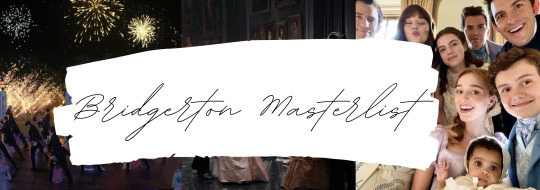
general disclaimer: expect spoilers for both the book and the show, although my stuff usually has more book elements. auggie basset & ernest livingston are only in a modern au. in addition, all the important links to my bridgerton: next gen ‘verse can be found here.

𝓥𝓲𝓸𝓵𝓮𝓽’𝓼 𝓖𝓻𝓪𝓷𝓭𝓬𝓱𝓲𝓵𝓭𝓻𝓮𝓷
Edmund • Miles • Charlotte • Mary
Charles • Alexander • William • Violet
Agatha • Thomas • Jane • George “Georgie”
Amelia • Auggie • Belinda • Caroline • David • Edward
Amanda • Oliver • Penelope • Georgiana • Frederick
John • Janet
Katharine • Richard • Hermione • Daphne • Anthony “Ant” • Benedict “Ben” • Colin • Eloise • Francesca “Frannie”
George • Isabella

𝓣𝓱𝓮 𝓢𝓹𝓸𝓾𝓼𝓮𝓼 (𝓪𝓴𝓪 𝓜𝔂 𝓞𝓒𝓼)
Juliet Knight • Grace Hill • Rupert Townshend • Arthur Townshend
Nell Shepherd • Emma Rutledge • Róisín O’Connolly • Jonathan “Jack” Fullerton
Stephen Ridlington • Eleanor Dane • Morgan Howell • Olivia Sharpe
Ernest Livingston • Phoebe Wycliff • Molly Campbell
Alice Linfield • Christopher “Kit” Barrington • Lucas Wivenly • Beatrice Winslow
Adeline Meadows • Duncan MacMillan
Gabe Montgomery • Elizabeth Winslow • Neil Pemberton • Timothy Hatcher • Fiona MacKenzie • Evie Wright • Vivian Marsh • Adam Howe • Nathaniel Moore
Lilliana Steele • Patrick O’Donovan

𝓢𝓷𝓪𝓹𝓼𝓱𝓸𝓽𝓼 𝓘𝓷 𝓛𝓸𝓿𝓮: 𝓐 𝓒𝓸𝓵𝓵𝓮𝓬𝓽𝓲𝓸𝓷
Note: As they have canonical spouses, I have not included stories for Amelia Basset, Belinda Basset, Caroline Basset, and Amanda Crane. Auggie Basset and his story are set in a modern AU. Each story is a one shot with snapshots of moments in their love stories.
TBD [Edmund Bridgerton & Juliet Knight, 1843]
TBD [Miles Bridgerton & Grace Hill, 1844]
TBD [Charlotte Bridgerton & Rupert Townshend, 1846]
TBD [Mary Bridgerton & Arthur Townshend, 1851]
TBD [Charles Bridgerton & Nell Shepherd, 1846]
TBD [Alexander Bridgerton & Emma Rutledge, 1847]
Don’t Care About Religion [William Bridgerton & Róisín O’Connolly, 1848]
TBD [Violet Bridgerton & Jack Fullerton, 1848]
TBD [Agatha Bridgerton & Stephen Ridlington, 1847]
TBD [Thomas Bridgerton & Eleanor Dane, 1853]
TBD [Jane Bridgerton & Morgan Howell, 1851]
TBD [Georgie Bridgerton & Olivia Sharpe, 1860]
Tempting Into Marriage [David Basset & Phoebe Wycliff, 1844]
TBD [Edward Basset & Molly Campbell, 1859]
TBD [Auggie Basset & Ernest Livingston, 2043-44]
TBD [Oliver Crane & Alice Linfield, 1847]
TBD [Penelope Crane & Christopher Barrington, 1849]
TBD [Georgiana Crane & Lucas Wivenly, 1850]
TBD [Frederick Crane & Beatrice Winslow, 1857]
TBD [John Stirling & Adeline Meadows, 1855]
TBD [Janet Stirling & Duncan MacMillan, 1851]
TBD [Katharine Bridgerton & Gabe Montgomery, 1848]
TBD [Richard Bridgerton & Elizabeth Winslow, 1856]
TBD [Hermione Bridgerton & Neil Pemberton, 1854]
TBD [Daphne Bridgerton & Timothy Hatcher, 1852]
TBD [Ant Bridgerton & Fiona MacKenzie, 1860]
TBD [Ben Bridgerton & Evie Wright, 1863]
TBD [Colin Bridgerton & Vivian Marsh, 1863]
Hypothetically [Eloise Bridgerton & Adam Howe, 1861]
TBD [Frannie Bridgerton & Nathaniel Moore, 1862]
TBD [George St. Clair & Lilliana Steele, 1855]
TBD [Isabella St. Clair & Patrick O’Donovan, 1850]

𝓜𝓲𝓼𝓬𝓮𝓵𝓵𝓪𝓷𝓮𝓸𝓾𝓼
Next Gen Fics:
In Which William Bridgerton Is Born Prematurely
I’d Still Dance with You
To See My Son Become a Father
Other Bridgerton Fics:
You Belong Somewhere You Feel Free
You Must Know You Are Beloved
The Aftermath
Bridgerton Writing Requests (closed)
Main Tags: #bridgerton next generation • #bridgerton next gen • #bridgerton next gen oc
#arrow’s masterlist#*my masterlist#bridgerton next generation#bridgerton next gen#bridgerton next gen oc#bridgerton oc#fic series: snapshots in love#bridgerton#bng series#feel free to ask about this series!!#it’ll be a little while before any stories are published and still trying to figure out which platform they’ll be on!
8 notes
·
View notes
Text
A reading list
Mostly to feed my own obsession with lists, but also to be used as a book recommendations list. Enjoy!
Το καπλάνι της βιτρίνας - Tiger in the glass, by Alke Zei
Παραμύθι χωρίς όνομα, Πηνελόπη Δέλτα - Fairytale without a name, by Penelope Delta
Ο Μάγκας, Πηνελόπη Δέλτα - The cool kid, by Penelope Delta
Ένα παιδί μετράει τ’ άστρα, Μενέλαος Λουντέμης - A child counts the stars, by Menelaos Loudemis
Sophie’s World, by Jostein Gaarder
The Phantom of the Opera, by Gaston Leroux
Robinson Crusoe, by Daniel Defoe
Jonathan Livingston seagull, by Richard Bach
The Catcher in the Rye, by J. D. Salinger
To Kill a Mockingbird, by Harper Lee
The orange girl, by Jostein Gaarder
Anna: a fable about the Earth’s climate and environment, by Jostein Gaarder
The Picture of Dorian Gray, by Oscar Wilde
A Tale of Two Cities, by Charles Dickens
Pride and Prejudice, by Jane Austen
The Book Thief, by Markus Zusak
The Hobbit, by J. R. R. Tolkien
The Lord of the Rings (The Felowship of the Ring - Two Towers - The return of the King), by J. R. R. Tolkien
Demian, by Herman Hesse
Anna of Green Gables, by L.M. Montgomery
Anne of Avonlea, by L.M. Montgomery
Anne of the Island, by L.M. Montgomery
The ones that walk away from Omelas, by Ursula Le Guin
Howl’s Moving Castle, by Diana Wynne Jones
A wizard of Earthsea (Earthsea Cycle #1), by Ursula Le Guin
The Worlds of Chrestomanci, by Diana Wynne Jones (heptalogy: Charmed Life - The Magicians of Caprona - Witch Week - The Lives of Christopher Chant - Mixed Magics - Conrad’s Fate - The Pinhoe Egg)
Ακυβέρνητες Πολιτείες, Στρατής Τσίρκας (τριλογία: Η Λέσχη - Αριάδνη - Νυχτερίδα) - Drifitng Cities, by Stratis Tsirkas (a trilogy : The Club - Ariagne - The Bat)
Η Φόνισσα, Αλέξανδρος Παπαδιαμάντης - The Murderess, by Alexandros Papadiamantis
Emma, by Jane Austen
The Name of the Rose, by Umberto Eco
Kafka on the Shore, by Haraki Murakami
The Plague, by Albert Camus
Eroica, Κοσμάς Πολίτης (Kosmas Politis)
The Name of the Wind, by Patrick Rothfuss
Gone With the Wind, by Margaret Mitchell
The Gambler, by Fyodor Dostoyevsky
Little Women, by Louisa May Alcott
Anna Karenina, by Leo Tolstoy
Swann’s Way, by Marcel Proust
Wuthering Heights, by Emily Bronte
The Great Gatsby, by F. Scott Fitzgerald
This Side of Paradise, by F. Scott Fitzgerald
Six of Crows, by Leigh Bardugo
Crooked Kingdom, by Leigh Bardugo
The Owl Service, by Alan Garner
Διακοπές στον Καύκασο, Μαρία Ιορδανίδου - Holidays in Caucasus, by Maria Iordanidou
Fire and Hemlock, by Diana Wynne Jones
A Tale of Time City, by Dianna Wynne Jones
The Pursuit of Love, by Nancy Mitford
The Princess Bride, by William Goldman
Love in a cold climate, by Nancy Mitford
The Sun Also Rises, Ernest Hemingway
The turn of the screw, by Henry James
The Dark Lord of Derkholm, by Diana Wynne Jones
The game, by Diana Wynne Jones
The last wish, by Andrzej Sapkwosky
A darker shade of magic, by V.E. Schwab
Sense and Sensibility, by Jane Auaten
Sculpting in time, by Andrei Tarkovski
Persuasion, by Jane Austen
Winter Rose, by Patricia A. McKillip
Swallows and amazons, by Arthur Ransome
What is literature?, by Jean-Paul Sartre
Hexwood, by Diana Wynne Jones
Deep Secret, by Diana Wynne Jones
The hatred of literature, by William Marx
Year of the Griffin, by Diana Wynne Jones
Castle in the air, by Diana Wynne Jones
Home of the Gentry, by Ivan Turgeniev
Archer’s Goon, by Diana Wynne Jones
The Homeward Bounders, by Diana Wynne Jones
Wilkin’s tooth, by Diana Wynne Jones
A wizard’s guide to defensive baking, by T. Kingfisher
Equal Rites, by Terry Pratchett
The Tombs of Atuan (Earthsea Cycle #2), by Ursula Le Guin
0 notes
Text
LIVINGSTON, Louisiana — A Louisiana man was sentenced to life in prison without parole after pleading guilty to first-degree murder charges Wednesday in the shooting deaths of five people, including his parents and girlfriend's father, in 2019.
Dakota Theriot was spared the death penalty in a plea agreement with prosecutors. The prison terms - five in all for each of the victims - will run concurrently.
Authorities in Louisiana have said Theriot provided a lot of information to investigators about how the killings unfolded, but a motive remained elusive.
In state court in Livingston Parish, Theriot, 24, pleaded guilty before District Judge Brenda B. Ricks in the killings of Summer Ernest, 20, who was Theriot's girlfriend; her 17-year-old brother, Tanner Ernest; and her father, Billy Ernest, 43, at a home outside of Walker, news outlets reported.
Later Wednesday in Ascension Parish, Theriot pleaded guilty before District Judge Jason Verdigets to two more counts of first-degree murder in the deaths of his parents, Keith and Elizabeth Theriot, both 50, prosecutors said.
Authorities have said Theriot was living with his girlfriend’s family when the shootings occurred in January 2019. After the Ernests were gunned down, Theriot took Billy Ernest's truck to Ascension Parish, where he was accused of shooting his father and stepmother at their home in Gonzales before fleeing to his grandmother’s home in Virginia, where he was captured.
Authorities in Louisiana have said Theriot provided a lot of information to investigators about how the killings unfolded, but a motive remained elusive.
District Attorney Scott Perrilloux noted that Theriot's extensive psychological records documented a history of mental illness.
“As in any decision made when resolving a case, consideration is given to the victims and their families, the community, and the legal and factual posture of the case in its entirety. The victims’ families have agreed with the defendant’s plea and sentence. We appreciate their patience and cooperation," Perrilloux said in a statement.
“Seeking the death penalty, although factually warranted, would lead to protracted and likely never-ending litigation for the victims’ families to endure,” he said. "After much review, discussion, and consideration, we felt this was the best outcome.”
Theriot’s trial was delayed for two years because of the COVID-19 pandemic.
1 note
·
View note
Photo
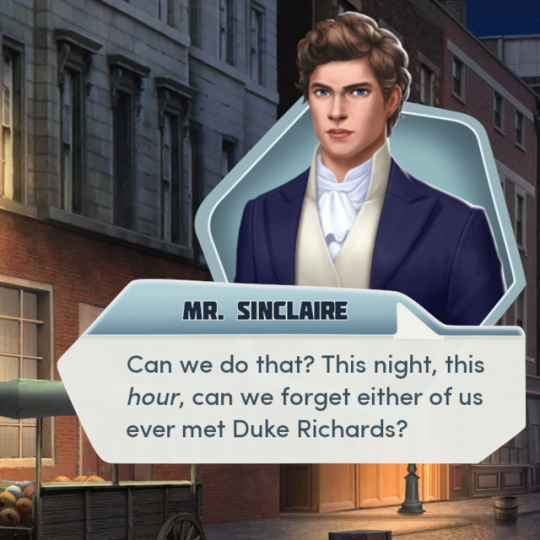
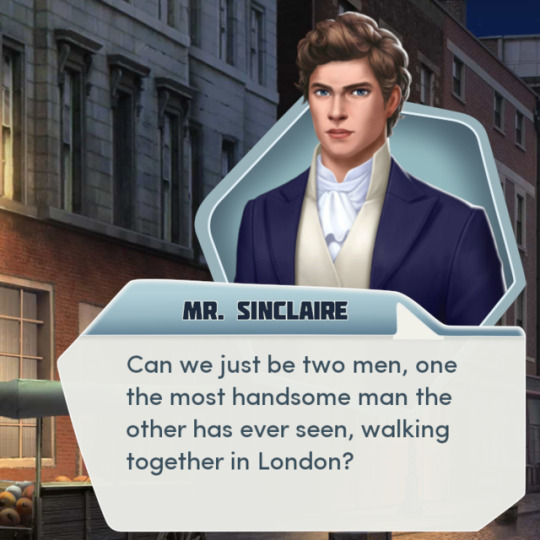
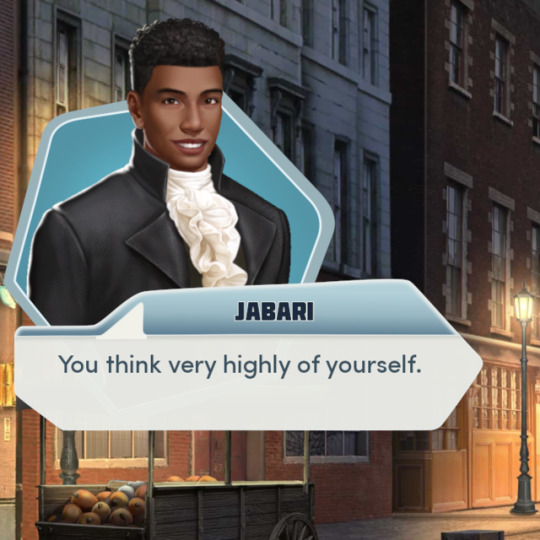
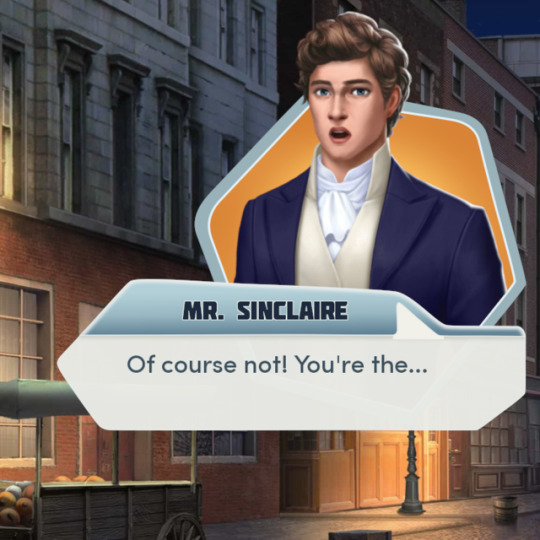
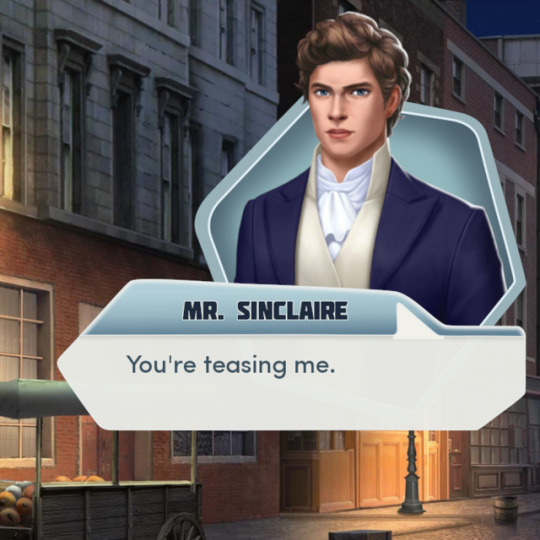
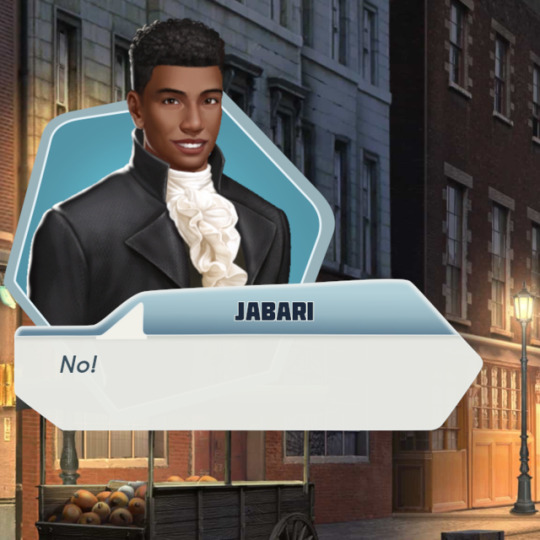
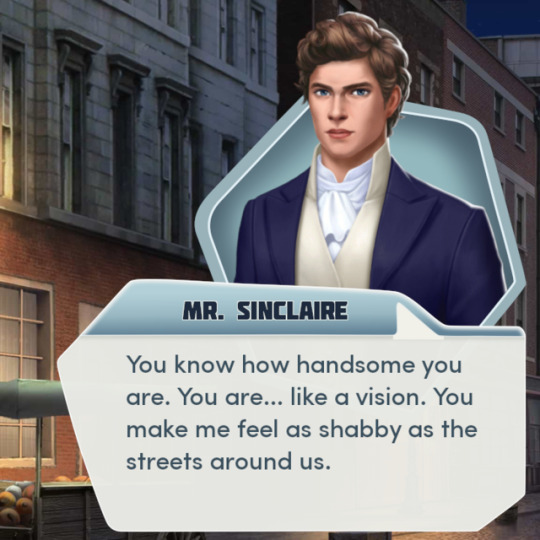
they’re so fucking cute
#actually went off book for this#usually i just shift the pronouns make what's in the book fit#desire and decorum#desire & decorum#edit#male mc edit#genderlocked book edit#playchoices#choices stories you play#MC: Jabari Livingstone#mc tag#ernest sinclaire#sinclaire x mc#genderlockedbookedits#desireanddecorumedits#sinclairexmmcedits
59 notes
·
View notes
Text
Toms Kaffee-Erinnerung: Thorn Tree Café im Stanley Hotel, Nairobi
Toms Kaffee-Erinnerung: Thorn Tree Café im Stanley Hotel, Nairobi
Es gibt Orte, da wird Geschichte lebendig. In diesem Fall ein gutes Stück britische Kolonialgeschichte in Afrika. Das Stanley Hotel wurde ursprünglich unter dem Namen Viktoria Hotel bereits 1902 eröffnet und beherbergte unter anderem Persönlichkeiten wie König Edward VIII, Ernest Hemingway, Winston Churchill oder die Autorin des Bestsellers “Jenseits von Afrika” Karen Blixen. Endgültig benannt…

View On WordPress
#David Livingstone#Edward Viii#Elisabeth II.#Ernest Hemingway#Jenseits von Afrika#Karen Blixen#Kolonialzeit#Nairobi#Prinz Phillip#Sir Henry Morton Stanley#Stanley Hotel#Thorn Tree Café#Viktoria Hotel#Winston Churchill
0 notes
Text
Over the last several years, there have been many opportunities to throw around terms like “fascist“ and “fascism,” typically in the context of the Republican Party and the wannabe dictator to whom many of its members have pledged their undying loyalty. In response, said Republicans have frequently gotten bent out of shape about such terms, insisting they’re totally uncalled for, not applicable, and say more about the hysterical people using them than they do about their targets. And yet…this sounds pretty fascist!
Per Insider:
"Amid the GOP’s nationwide push against teaching about race and sexuality in schools, two members of the Spotsylvania County School Board in Virginia advocated for burning certain books, according to the Fredericksburg-based Free Lance-Star newspaper. This came as the school board directed staff to begin removing “sexually explicit” books from library shelves, after voting 6-0 in favor of the removal, the Lance-Star reported. The board has plans to review how certain books or materials are defined as “objectionable,” the paper said, which opens the door for other content to be removed. Courtland representative Rabih Abuismail and Livingston representative Kirk Twigg both championed burning the books that have been removed. “I think we should throw those books in a fire,” Abuismail said. Meanwhile, Twigg said he wanted to “see the books before we burn them so we can identify within our community that we are eradicating this bad stuff.”
For those unaware of the historical precedents, book burnings have a long and dark history tied to censorship and oppressive regimes, most famously the one in Nazi Germany led by Adolf Hitler. In 1933, Nazis burned thousands of books deemed “un-German,” including the works of Jewish authors like Albert Einstein and those of “corrupting foreign influences” like Ernest Hemingway.
The directive to remove “sexually explicit” books was seemingly prompted by a school board meeting on Monday during which parents expressed concerns about literature students can access via the Riverbend High School’s digital library app. One parent was apparently alarmed by the availability of “LGBTQIA” fiction, the Lance-Star said, and found a book called 33 Snowfish by Adam Rapp especially troubling. The American Library Association named the book a Best Book for Young Adults in 2004. According to a Publishers Weekly review, the book is “dark tale about three runaways who understand hatred and violence better than love.”
The calls for book burning in Virginia follow the election of Glenn Youngkin, who said during his gubernatorial campaign that he would ban critical race theory on his first day in office, and ran an ad featuring a local mother who tried to get Beloved, the Pulitzer Prize–winning novel by Toni Morrison, removed from her son’s A.P. English curriculum. The mother claimed the book contained “some of the most explicit material you can imagine,” which is entirely true, given that it’s about the horrors of slavery, which many conservative parents would prefer their children not really learn about.
“What has taken us aback this year is the intensity with which school libraries are under attack,” Nora Pelizzari, a spokesperson at the National Coalition Against Censorship, told The Washington Post. She added: “Particularly when taken in concert with the legislative attempts to control school curricula, this feels like a more overarching attempt to purge schools of materials that people disagree with. It feels different than what we’ve seen in recent years.”
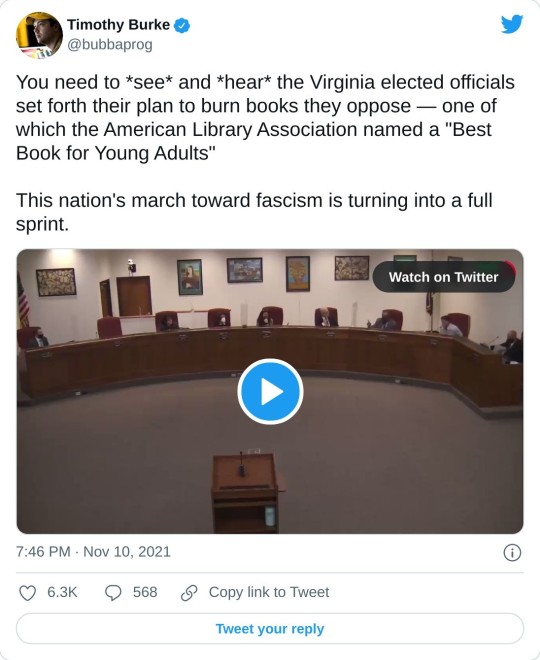
Also this week, the Post reports, a school board outside of Wichita, Kansas, said it was removing 29 books from circulation, including Morrison’s book The Bluest Eye, and writings about racism in America like August Wilson’s Pulitzer Prize–winning play “Fences.” Last month, Texas state representative Michael Krause launched a “review” of books that “contain material that might make students feel discomfort, guilt, anguish, or any other form of psychological distress because of their race or sex or convey that a student, by virtue of their race or sex, is inherently racist, sexist, or oppressive, whether consciously or unconsciously.” (Krause specifically flagged numerous award-winning books, from the 1967 Pulitzer Prize–winning novel The Confessions of Nat Turner to Between the World and Me by Ta-Nehisi Coates.) Also in Texas, a school district recently told teachers if they have a book on the Holocaust, they must also provide a book with an “opposing perspective.”
#politics#us politics#news#vanity fair#book burning#gop#conservatives be like#conservatives#can conservatives read? challenge#republicans be like#republicans#business insider#nazi germany#va#Virginia#glenn youngkin#critical race theory#twitter#tweet
105 notes
·
View notes
Text
21 in 2021: Finished!

Hey everyone!
Remember when we were young and full of hope for the new year, and we made those lofty lists of goals...? Yeah, me too. My goals are not going great to be quite honest and I’ve mostly given up by now, but at least one of them is tackled! I finished my 21 in 2021 list yesterday, and here’s how it went!
Loki: Where Mischief Lies - Mackenzi Lee --> 3.5/5 (February)
The Gilded Wolves (The Gilded Wolves #1) - Roshani Chokshi --> 3.5/5 (July)
Diary of a Newlywed Poet - Juan Ramón Jiménez --> 2.5/5 (February)
Flame in the Mist (Flame in the Mist #1) - Renee Ahdieh --> 3/5 (August)
Code Girls: The Untold Story of the American Women Code Breakers Who Helped Win World War II - Liza Mundy --> 4/5 (November)
In Our Time - Ernest Hemingway --> 1/5 (April)
Queen of Air and Darkness (The Dark Artifices #3) - Cassandra Clare
The House of the Spirits - Isabel Allende --> 3.5/5 (March)
Rebecca - Daphne du Maurier --> 3/5 (December)
A Midsummer Night’s Dream - William Shakespeare --> 3/5 (May)
The Valiant (The Valiant #1) - Lesley Livingston --> 3/5 (November)
Jane Austen at Home - Lucy Worsley --> 4.5/5 (July)
The Tyrant’s Tomb (The Trials of Apollo #4) - Rick Riordan --> 3.5/5 (August)
The Tower of Nero (The Trials of Apollo #5) - Rick Riordan --> 3.5/5 (September)
Making a Tinderbox (The Tinderbox Tales #1) - Emma Sterner-Radley --> 2/5 (March)
Night and Silence (October Daye #12) - Seanan McGuire --> 3/5 (April)
Ghosts of the Shadow Market - Cassandra Clare
El infinito en un junco. La invención de los libros en el mundo antiguo - Irene Vallejo --> 5/5 (April)
The Great Passage - Shion Miura --> 2/5 (March)
Tooth and Claw - Jo Walton --> 2.5/5 (February)
21 Lessons for the 21st Century - Yuval Noah Harari --> 4/5 (September)
Cassandra Clare’s are crossed off because I decided around October or so to finally be honest with myself and admit that I wasn’t going to read any more Shadowhunter books. I didn’t technically read them, but still: crossed off the list, two less books!
How are your own goals going?
18 notes
·
View notes